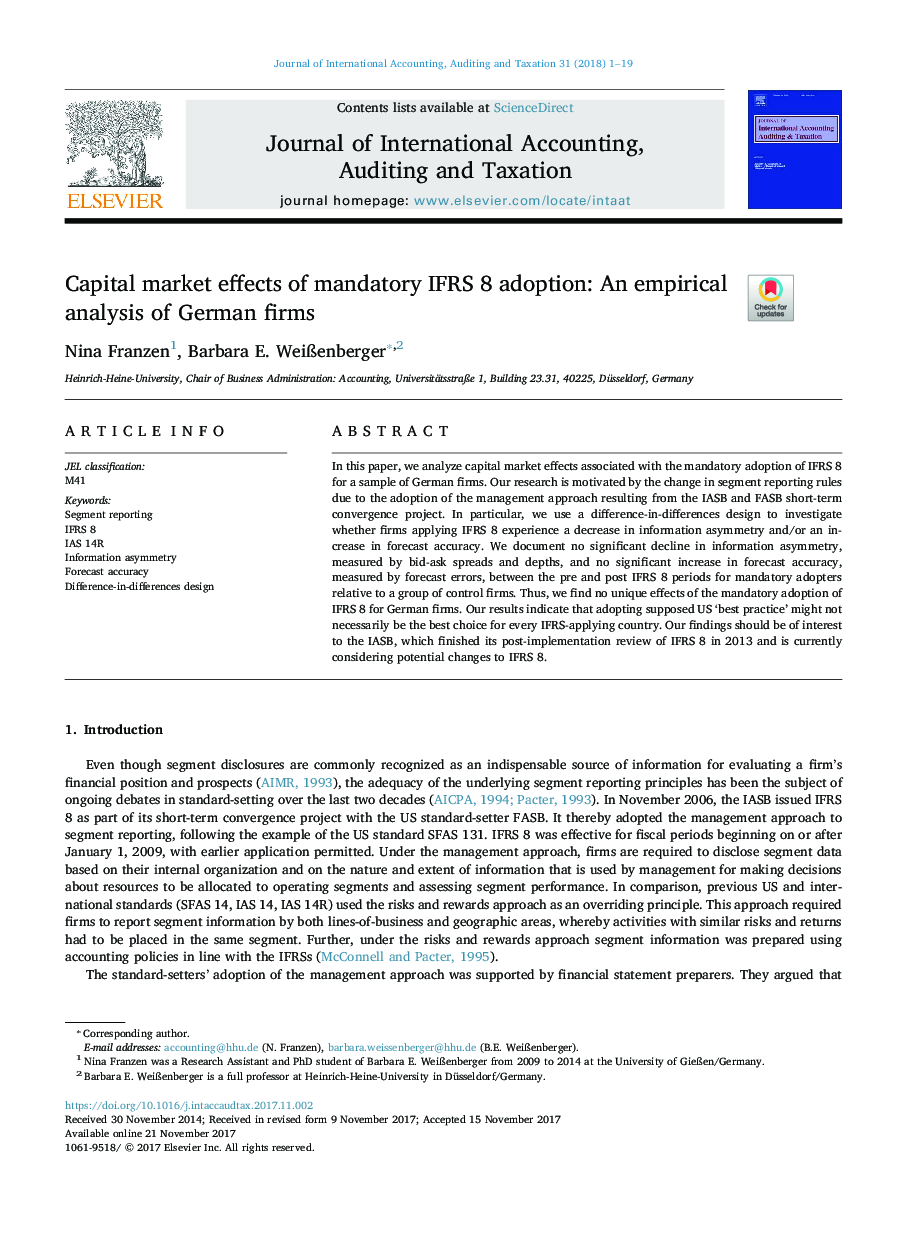| Article ID | Journal | Published Year | Pages | File Type |
|---|---|---|---|---|
| 7412949 | Journal of International Accounting, Auditing and Taxation | 2018 | 19 Pages |
Abstract
In this paper, we analyze capital market effects associated with the mandatory adoption of IFRS 8 for a sample of German firms. Our research is motivated by the change in segment reporting rules due to the adoption of the management approach resulting from the IASB and FASB short-term convergence project. In particular, we use a difference-in-differences design to investigate whether firms applying IFRS 8 experience a decrease in information asymmetry and/or an increase in forecast accuracy. We document no significant decline in information asymmetry, measured by bid-ask spreads and depths, and no significant increase in forecast accuracy, measured by forecast errors, between the pre and post IFRS 8 periods for mandatory adopters relative to a group of control firms. Thus, we find no unique effects of the mandatory adoption of IFRS 8 for German firms. Our results indicate that adopting supposed US 'best practice' might not necessarily be the best choice for every IFRS-applying country. Our findings should be of interest to the IASB, which finished its post-implementation review of IFRS 8 in 2013 and is currently considering potential changes to IFRS 8.
Related Topics
Social Sciences and Humanities
Business, Management and Accounting
Accounting
Authors
Nina Franzen, Barbara E. WeiÃenberger,
